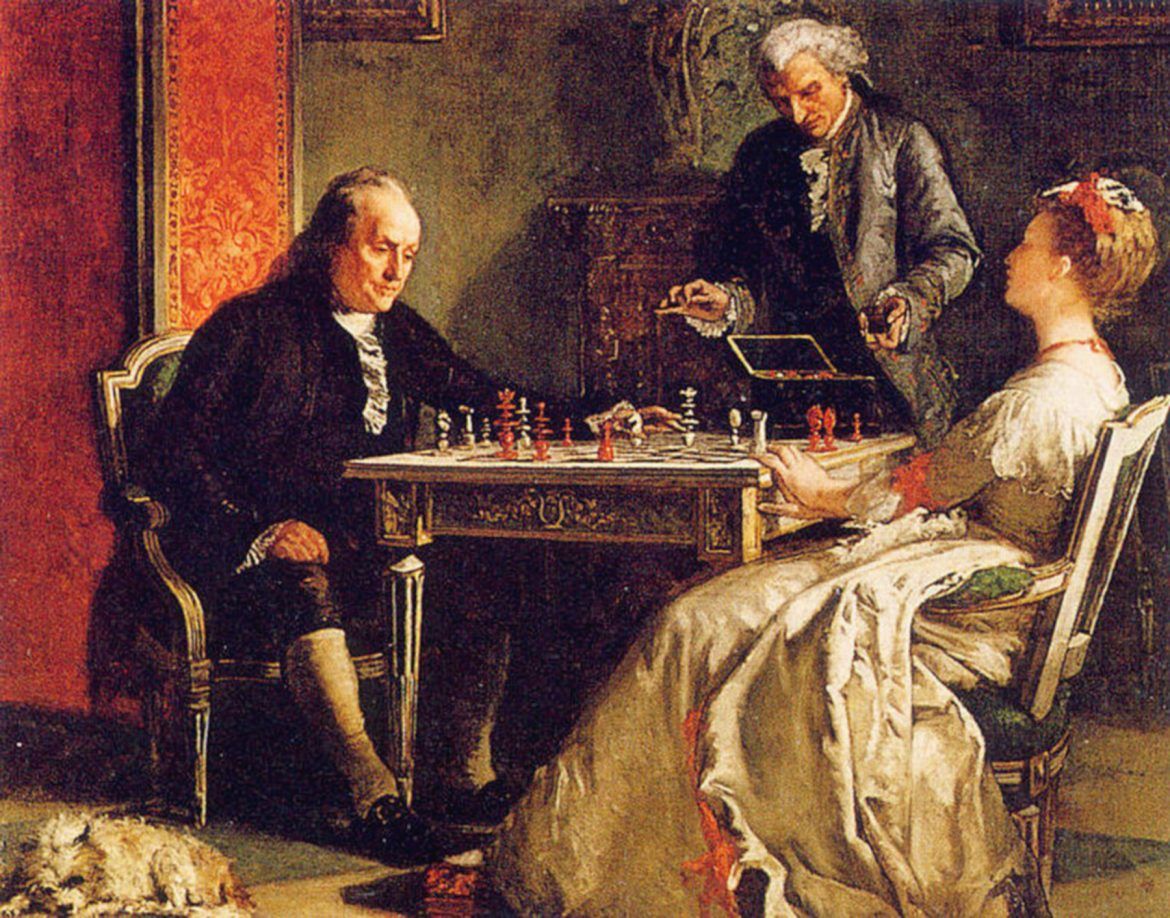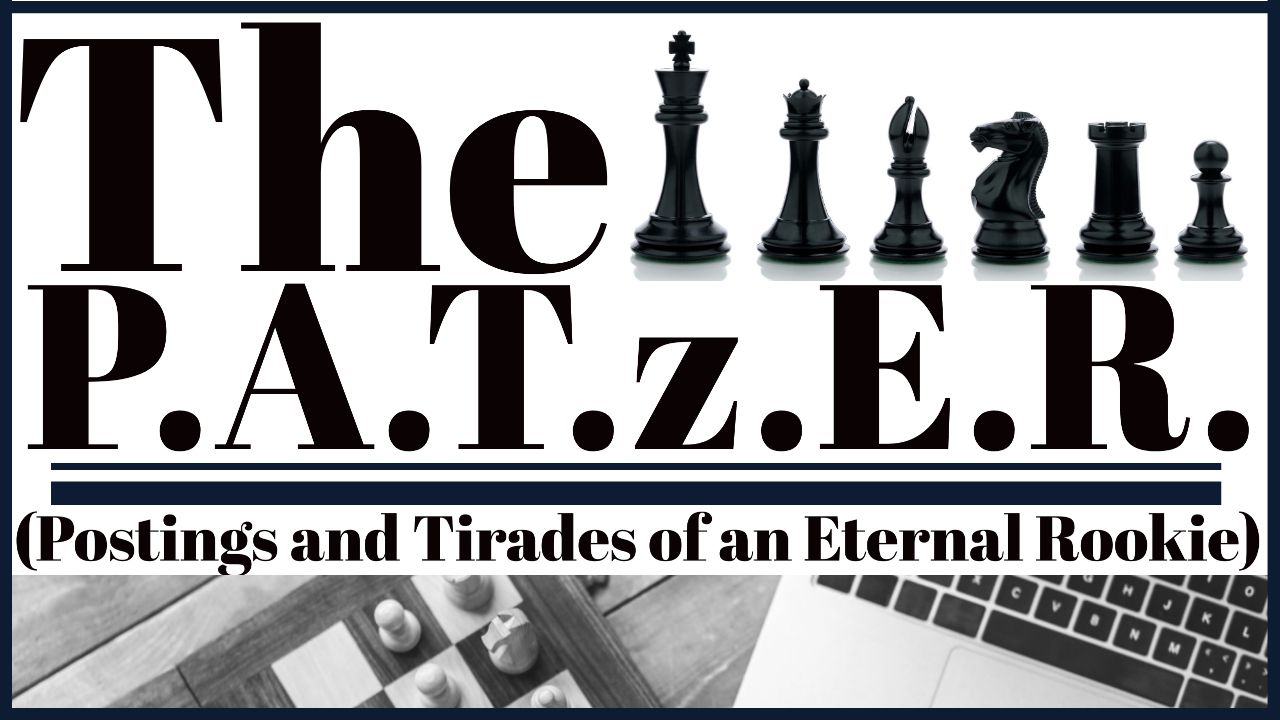
Chess almost prevented the American Revolution... And helped to win it!
Imagine for a moment that you are living in 18th century France and you are sitting across from a dapper American diplomat by the name of Benjamin Franklin. The two of you are enjoying a nice game of chess in a cafe and he is turning out to be quite the formidable opponent.
Seeing an opportunity to attack, you slide your rook across the board and proudly exclaim, "Check!"
He looks at you, shrugs his shoulders, and plays on. He is completely ignoring your check! Perturbed at his ignorance of the game, you exclaim:
"Sir, you're in check!"
Again, he scoffs, continuing to ignore that his king is in check. He says to you, "I see that. But I shall not defend him. If he was a good king, like yours, he would deserve the protection of his subjects; but he is a tyrant and has cost them already more than he is worth. Take him, if you please, I can do without him, and fight out the rest of the battle without him."
"But Dr. Franklin," you protest. "In chess, we do not take the king."
Franklin laughs. "In America," he says. "We do."
This is a true story of an event that took place during one of the many chess games Ben Franklin enjoyed while serving as a diplomat in France. His assignment was to win the support of an ally that could turn the tide of the American Revolution and win independence from the British. His tool to accomplish this task? CHESS!
I have little doubt this event happened not only once, but many times. Franklin used chess as a wonderful means of conveying the message of the American case for independence.
Thanks to all of his efforts, both on and off the chessboard, the French ultimately entered the war on the side of the Americans, and independence was ultimately won.
Franklin, like many of us, would have been considered an Adult Improver. For he learned the game during his early adulthood and then studied the game relentlessly.
He was always looking for stronger players and rarely found them. In fact, it has been speculated that Franklin may have been the strongest chess player in the American Colonies at the time.
Even before the war, Franklin would visit England as a diplomat and seek opportunities to play against strong chess players.
One such player was Lady Caroline Howe, sister of Rear-Admiral Lord Richard Howe, who invited Franklin over for a game.

While they played, Lady Howe arranged for Franklin to meet with her brother, Lord Howe. Lord Howe was eager to prevent war and so he committed to working with Franklin to find a solution to address the American colonists' grievances with the British Crown.
For several weeks, the two gentlemen arranged these secret meetings under the guise of Franklin playing chess with Lady Howe.
Alas, after multiple attempts and proposals which would involve more members of the British government, the two sides could not be reconciled and the American Colonies would eventually go to war for their independence.
For Franklin, chess was a commonly used tool in his diplomatic toolbox. Chess opened the door for him to meet with powerful British leaders in an attempt to prevent the war. Once this failed, chess would again be used in France to socialize and win friends and allies to the American cause.
For you, has chess ever been a means to an end, other than a checkmate? If so, please share your stories in the comments below!
References:
Shenk, David (2006). The Immortal Game: A History of Chess. Doubleday. ISBN 0-385-51010-1.
